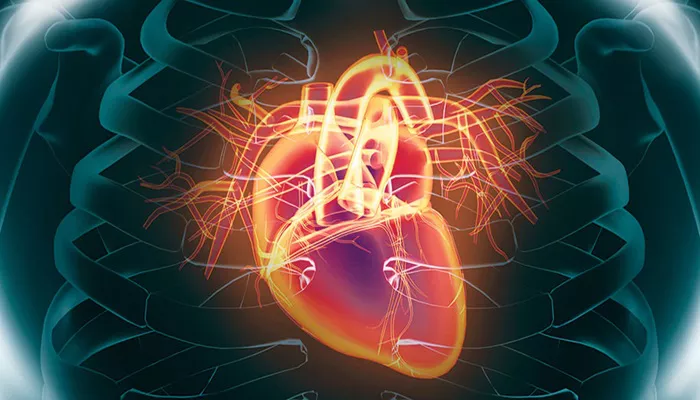Myocarditis, an inflammation of the heart muscle, is a condition that can vary in severity from mild to severe. This inflammation can result from various causes, including viral infections, autoimmune disorders, or reactions to medications.
Among the different severities of myocarditis, mild myocarditis represents a less severe form but still necessitates a thorough understanding of its duration, management, and the factors influencing recovery. This article aims to provide a comprehensive overview of how long mild myocarditis lasts, exploring the factors that can affect recovery time and offering guidance on managing the condition effectively.
What Is Mild Myocarditis?
Mild myocarditis is characterized by a less severe inflammation of the heart muscle compared to moderate or severe forms of the condition. It often manifests with mild symptoms and can be caused by a variety of factors, including:
Viral Infections: Commonly caused by viruses such as Coxsackievirus, adenovirus, or influenza.
Autoimmune Diseases: Conditions where the immune system mistakenly attacks the heart muscle.
Drug Reactions: Adverse reactions to certain medications or drugs.
Bacterial Infections: Rarely, bacteria can also cause mild myocarditis.
In mild cases, the inflammation is typically localized and less extensive, which can influence the duration and severity of the symptoms.
SEE ALSO: Why Is Myocarditis More Common in Males
Typical Duration of Mild Myocarditis
The duration of mild myocarditis can vary significantly depending on several factors. Generally, mild myocarditis is expected to resolve within a few weeks to a few months, but several aspects can affect this timeline:
Cause of Myocarditis: The underlying cause of myocarditis can impact recovery time. For instance, viral-induced mild myocarditis may resolve within 1-2 months with proper rest and treatment. Autoimmune-related myocarditis may take longer to resolve, depending on the management of the underlying autoimmune condition.
Patient Health and Age: Younger and healthier individuals tend to recover faster from mild myocarditis compared to older adults or those with pre-existing health conditions.
Treatment and Management: Prompt and appropriate treatment can significantly affect recovery time. Treatment usually involves managing symptoms and addressing the underlying cause. For viral myocarditis, supportive care, including rest and medications to manage symptoms, is often sufficient. For autoimmune myocarditis, immunosuppressive medications might be required.
Adherence to Medical Advice: Following medical recommendations, including rest, lifestyle modifications, and medication adherence, is crucial for recovery. Non-compliance can prolong the duration of symptoms and complicate recovery.
Monitoring and Follow-Up: Regular monitoring through follow-up visits and diagnostic tests (such as echocardiograms and MRIs) helps ensure that the condition is improving and that there are no complications. The presence of persistent symptoms may indicate a need for a longer recovery period or further intervention.
Symptoms And Recovery
Mild myocarditis often presents with relatively mild symptoms, which can include:
Fatigue: Feeling unusually tired or weak.
Chest Discomfort: Mild chest pain or discomfort, often not severe.
Shortness of Breath: Difficulty breathing, especially with exertion.
Palpitations: Noticeable irregular heartbeats.
The recovery from mild myocarditis involves managing these symptoms and gradually returning to normal activity levels.
Patients are usually advised to avoid strenuous activities and to follow a balanced diet to support overall health. Recovery time varies but generally falls within the following ranges:
Mild Cases: Recovery is typically within 4-6 weeks, with gradual improvement in symptoms.
Moderate to Severe Cases: Even if initially classified as mild, some cases might progress or experience symptoms for a longer duration, extending the recovery period to several months.
Factors Affecting Recovery Time
Several factors can influence the duration of mild myocarditis and the overall recovery process:
Severity of Inflammation: Even mild myocarditis can vary in the extent of inflammation, affecting how long symptoms persist. Monitoring the level of inflammation through imaging and blood tests can help gauge recovery.
Underlying Health Conditions: Pre-existing cardiovascular conditions, diabetes, or other chronic illnesses can complicate the recovery from myocarditis and potentially extend the duration of symptoms.
Complications: Although rare in mild cases, complications such as persistent heart inflammation or heart failure can occur. These complications may prolong recovery and require additional treatment.
Psychosocial Factors: Emotional stress, anxiety, and depression can also impact recovery time. Addressing these factors through support and counseling can contribute to a faster and more comprehensive recovery.
Management And Treatment
The management of mild myocarditis primarily focuses on alleviating symptoms and supporting the heart muscle’s healing process.
Common treatment strategies include:
Medications: Depending on the cause, medications may include anti-inflammatory drugs, corticosteroids for autoimmune-related myocarditis, or antiviral drugs if a specific virus is identified.
Lifestyle Modifications: Patients are often advised to adopt a heart-healthy lifestyle, including:
Adequate Rest: Ensuring sufficient rest to allow the heart muscle to heal.
Healthy Diet: Consuming a balanced diet rich in nutrients to support overall health.
Avoiding Strenuous Activities: Gradually resuming physical activities as advised by a healthcare provider.
Regular Monitoring: Follow-up visits with a cardiologist for regular monitoring of heart function and recovery progress are essential.
Diagnostic tests such as echocardiograms or MRIs may be used to assess the extent of inflammation and monitor healing.
Patient Education: Educating patients about recognizing symptoms of worsening myocarditis and understanding the importance of adherence to treatment and follow-up care is critical for successful recovery.
Conclusion
Mild myocarditis, while less severe than its moderate or severe counterparts, still requires careful management and monitoring. The duration of mild myocarditis varies but is generally manageable with proper treatment and lifestyle adjustments. Understanding the factors influencing recovery time and adhering to medical advice are crucial for achieving a full recovery.

